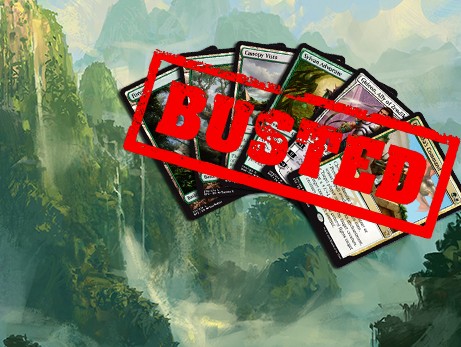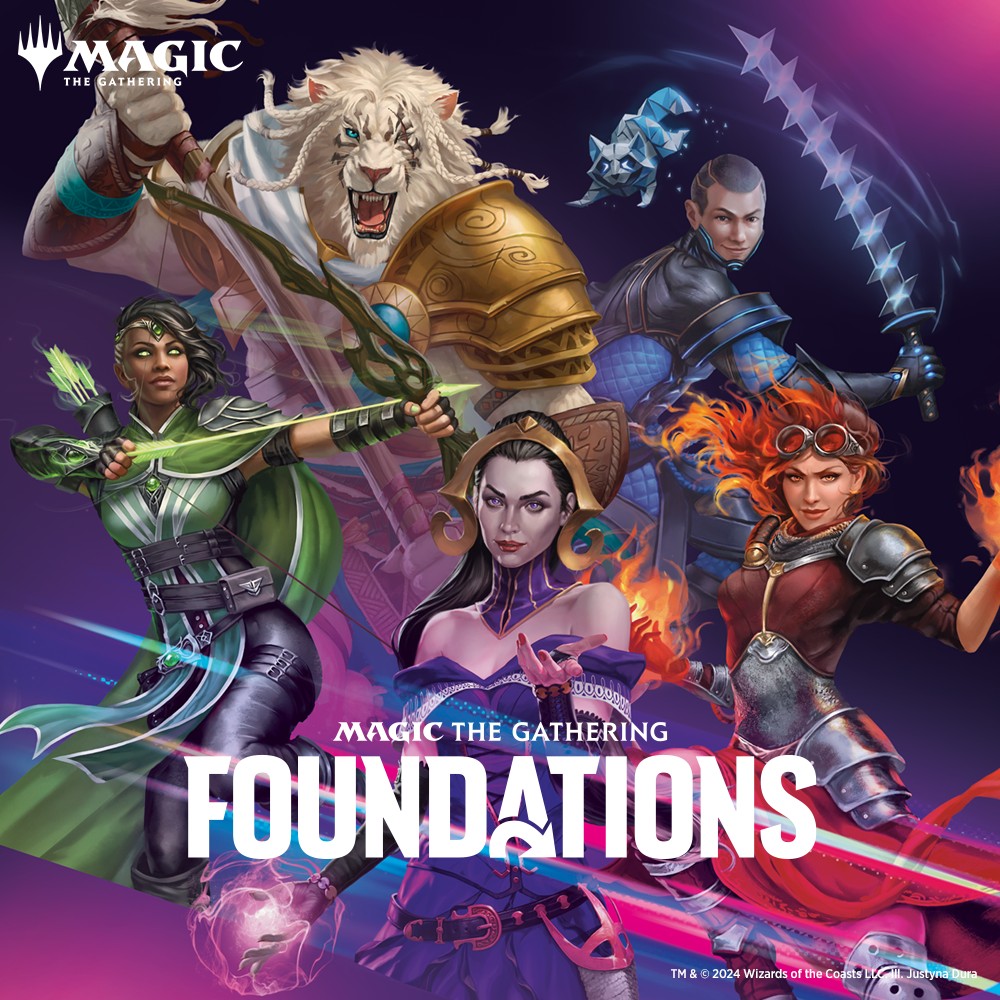For this week's article, I thought it might be a good idea to help my readers become more adept at recognizing when someone's cheating against them. There isn't much that feels worse in this game than when you realize your opponent was cheating or stealing from you.
First things first, Judges are here to help you. If at any point in time you feel like your opponent is doing something that they shouldn't, or if you want clarifications on their actions, don't feel afraid to call a Judge. That's literally what they are compensated to be around for.
There's a certain social stigma around calling a Judge that seems like the equivalent to tattling on someone. Ignore that and use these great stewards of the game to help protect you from certain... "misunderstandings".
The list of cheats I'm about to give you isn't comprehensive, but they are some of the more common ones that you're sure to run into at some point.
The Shuffle Cheat:
With this cheat your opponent aims at best to gain information by looking at the contents of your deck while shuffling it. At worst, they're trying to stack your deck and force you to repeatedly mulligan.
This was unfortunately common back in 2014 and 2015, and a whole slew of players like Jared Boettcher and Trevor Humphries have received bans for employing this cheap tactic at various tournaments.
The players who employ these cheats tend to be overly friendly in an attempt to disarm you and get you to relax. They work really hard to create a trustful vibe so that you let your guard down enough for them to take advantage of you.
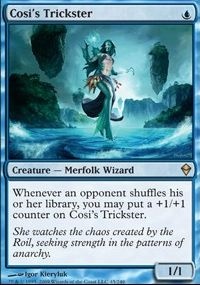
What you can do:
Watch your opponent like a hawk. Even when you're shuffling their deck, make sure that your eyes are on them at all times. If they even look like they could potentially see your cards, make sure that you politely ask them to shuffle in a way that doesn't make you feel uncomfortable. If they don't comply, feel free to call a Judge and state your case.
Judges watch for this now, so players who have multiple warnings for this infraction are tracked. Even if they aren't caught this time, they might be next time!
Playing two lands in a turn:
With all of the discussions about watching your opponent for cheating, this becomes one of the easiest tricks to prevent. Typically what happens is that your opponent will wait until turn five or later, when it's not as obvious if they've already played a land. Then, after they do play a land, they'll go through a long protracted turn and finish off by playing a second one for the turn. Some may even ask if they have played a land, knowing full well that you have no clue and will probably say, "I don't know".
Keep in mind that some players will do this accidentally and honestly have no idea, which makes this almost a safe cheat for more unscrupulous individuals.

What you can do:
Always call a Judge. Don't even try to remember if they played a land because then you make it possible for them to gain an advantage. A Judge will come by and ask about the events of the previous turn. Answer everything truthfully and to the best of your memory, and you will find out for sure if a land has been played or not this turn. It's the safest way and is the least likely to offend an innocent and forgetful player.
The "Miscommunication" Cheat:
This occurs when someone makes a blatant mistake and tries to take back their mistake by claiming that you must have heard them wrong. Non native English speakers definitely have an advantage when they say this, but it's a cheat all the same; especially when someone has been playing a certain way the whole game and then decides that the same action they have been taking is not the one they meant to take.
At Pro Tour Paris in 2011, I had a player dead on board to three copies of Galvanic Blast in my hand. They were not going to be Metalcrafted, but that didn't matter since he was at four life after damage resolved. This game would decide the winner, and he had forgotten to regenerate his Blight Mamba. In fact, after we resolved damage he had picked up two of my creatures to put them in the graveyard and one of his own, and at this point I mentioned that his Blight Mamba was dead because he didn't regenerate it.
He then tapped two mana and said he was regenerating it and I called the Judge. He pretended like he had regenerated the card before we had starting binning creatures. At this point, I realized my opponent was trying to pull a fast one and revealed my hand which showed that I had lethal damage and nothing to gain from this situation. I said that I wanted this player investigated for lying to a Judge and changing the story as that is not what occurred and I had no reason to lie. While I kept my story straight, the player in question did not. I remember BDM passing by while I was getting all worked up about this and laughing.

What you can do:
This is a tough one, and unfortunately sometimes they'll get away with it. What you can do is always call a Judge and ensure that you give the truthful and full account of the situation. Ask if this player has priors for doing this and ask that it be recorded on their DCI record to ensure that they don't continue to take advantage of this loophole. Don't worry, if a player has enough priors on something like this, the Judges do start to take notice.
The "Sloppy" Cheat:
Some cheaters will try to use sloppiness as their excuse for drawing extra cards or doing something wrong like playing a spell off the wrong mana. When caught, they claim that they made a mistake or that they did not realize what they were doing. The range of infractions that they can commit can be as small as flipping a card of yours over while shuffling, to casting a six mana spell for five.
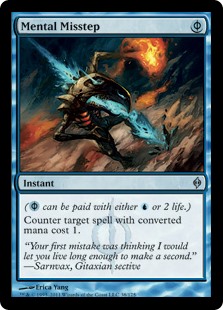
What you can do:
While some players will do this by mistake, you can still minimize the chances of this happening to you. One of the ways I do this is by asking my opponent not to clump lands together. At local stores, I have encountered and caught cheaters who have put all their lands in a pile and then try to cast a spell that they don't have the mana for. They get upset when you ask them to unclump their lands, but I always respond with, "Everytime you cast a spell, I'm going to check what lands are tapped. So you can keep them clumped, but when I want to see it you have to show me".
You should always call the Judge if you have an opponent committing an infraction. Even if you think it was unintentional, this reduces the leniency of their future errors and prevents someone from taking advantage of good-natured people.
At Pro Tour Hour of Devastation, one player was caught using Sloppy cheats on multiple occasions against multiple Canadian pros. Thankfully he's currently under investigation since each of the pros made sure to inform the Judges.
The "Stalling" Cheat:
This last cheat is very frustrating to play against, as it takes on the appearance of a very slow and methodical player.
Since calling the "clock" on a player is frowned upon in Magic just like it is in Poker, players tend to give their opponent the benefit of the doubt. Very few players make calls for slowplay, and when they do it's usually only because they've been burned in the past. There are some very famous cases of high level pros who have used their clock management to get a draw when they couldn't get a win. I've even seen an article where the premise was if you were playing against the best golfer in the world, you'd only want to do one hole. And just as in Magic, it is all about playing that first game and making sure that the second game is never completed. This is ridiculous of course, and players who stall intentionally should be punished.
You will also see this with certain players that I won't name who take forever to make a decision when they're behind in the game. But when they need to finish the game decisively before time runs out, they are essentially throwing their cards at you. What's changed? The fact that they don't want a draw in that particular spot, but are okay taking a draw when they are going to lose instead.
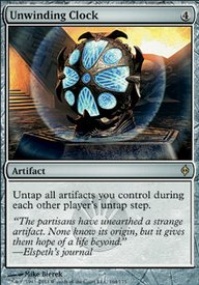
What you can do:
If you believe that your opponent is taking too long to do something, or is continuously looking at irrelevant things such as graveyards and board states and huffing and puffing for a minute before taking each action, then alert them that they need to play faster. If it continues, I wouldn't bother with any further prods and just call a Judge instead. I would advise you to ask them to watch the match for slowplay so that your opponent does not get defensive. This will help protect you from someone who is trying to get a draw out of a loss or a win in an unfavourable matchup by ensuring that game two is never completed.
All of these possible cheats can be done unintentionally, so don't just suspect that every opponent is trying to cheat you. As always a few bad apples ruin it for the rest of us, but if you keep these in mind and stay alert, you'll have what it takes to protect yourself.
Are there any cheats that I missed? I'd love to hear about what you think in the comments.
This is #MTGChamp weekend, so make sure you enjoy the World Championship and tune in on Twitch to follow your favourite pros.
See you all next week.
Sam

